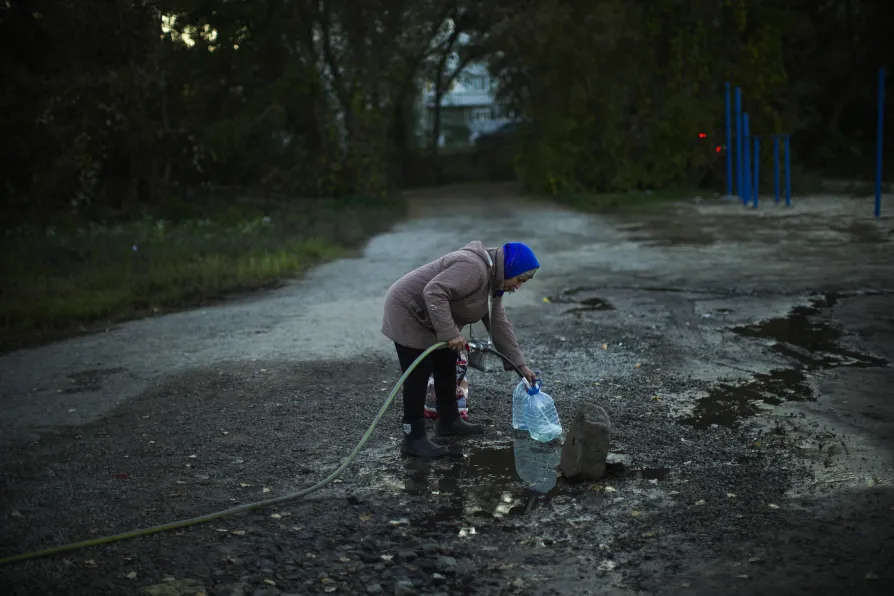
 A woman refills plastic bottles with water in a well in Kivsharivka, Ukraine, Sunday, October 16, 2022
A woman refills plastic bottles with water in a well in Kivsharivka, Ukraine, Sunday, October 16, 2022
NEARLY a billion children across the world struggle to access water, according to a damning new report.
The KidsRights Index, based on figures supplied by UN agencies, said in a new report published on Wednesday that 920 million children across the globe are affected by water scarcity.
The Dutch non-governmental agency said diseases such as malaria and dengue affect around one in four children, around 600m people.
The report also said more than one-third of the world’s children are currently vulnerable to heatwaves.
The KidsRights Index measures how children’s rights are respected annually and is compiled with Rotterdam’s Erasmus University.
The index ranks Iceland, Sweden and Finland as the best for children’s rights out of the world’s 185 recognised countries.
Sierra Leone, Afghanistan and Chad are the worst places to be if you are a child.
Marc Dullaert, founder and chair of KidsRights, described this year’s report as “alarming for our current and future generations of children.”
“A rapidly changing climate is now threatening their futures and their basic rights,” he said.
“There has been no significant progress in the standards of children’s lives over the past decade and on top of that their livelihoods have been severely impacted by the Covid-19 pandemic,” Mr Dullaert added.
The organisation said Covid-19 had a severe impact on children, with many unable to get food or medicine due to disruptions and the closure of clinics.
KidsRights reports that around 286,000 children under the age of five died as a result of the impact of the pandemic.
For the first time in two decades, the number of child labourers has risen to a staggering 160m, an increase of 8.4m over four years.
KidsRights highlighted Angola and Bangladesh as having significantly improved their scores in regards to children’s rights.
Angola has more than halved its under-five child mortality, while Bangladesh reduced the number of underweight children under five years of age by almost half.
But the report also picked out Montenegro for its low vaccination numbers, ranked 49 on the index.
The survey uses UN data to measure how countries measure up to the UN Convention on the Rights of the Child.
The convention, which was adopted in 1990, sets out a series of civil, political, economic, social and cultural rights that should apply to anyone under the age of 18.

While much attention is focused on Israel’s aggression, we cannot ignore the conflicts in Africa, stoked by Western imperialism and greed for natural resources, if we’re to understand the full picture of geopolitics today, argues ROGER McKENZIE

















